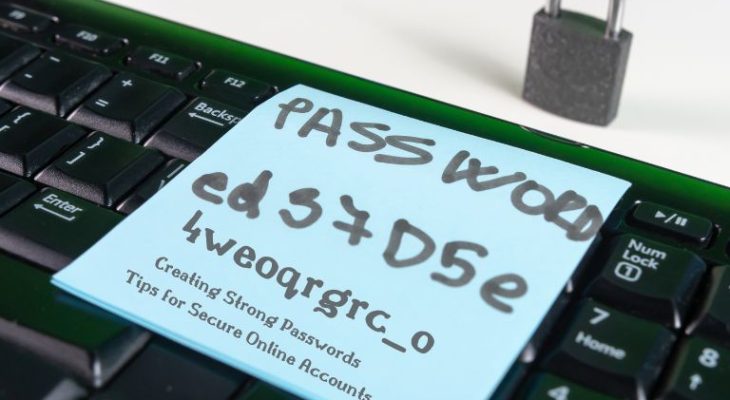In today’s digital age, passwords are the primary line of defense against unauthorized access to our online accounts. With the increasing frequency and severity of data breaches, it’s more important than ever to create strong passwords to protect our sensitive information. However, many people still use weak passwords that can be easily guessed or cracked by cyber criminals.
In this article, we will discuss the importance of strong passwords and provide tips for creating and managing them effectively.
Contents
Why Strong Passwords are Important
A strong password is a combination of letters, numbers, and symbols that is difficult for anyone to guess or crack. When you use a weak password, you put yourself at risk of identity theft, financial fraud, and other forms of cybercrime. Hackers can easily guess weak passwords using automated tools that can try millions of combinations in a matter of seconds. Once a hacker gains access to your account, they can steal your personal information, access your financial accounts, and even steal your identity.
Tips for Creating Strong Passwords
Creating a strong password may seem like a daunting task, but it’s easier than you think. Here are some tips to help you create a strong password:
Use a Long Password
The longer your password, the harder it is for a hacker to crack. A strong password should be at least 12 characters long. You can use a passphrase or a series of random words to create a strong and memorable password.
Use a Combination of Characters
A strong password should include a combination of uppercase and lowercase letters, numbers, and symbols. You can substitute some letters with numbers or symbols, such as using “3” instead of “e” or “@” instead of “a.”
Avoid Common Passwords
Avoid using common passwords such as “password,” “123456,” or “qwerty.” These passwords are easily guessable and are among the most commonly used passwords. always use the password like on this table:
Password Example |
|---|
| qzxeesx5kx8 |
| 4weoqrgrc_o |
| a9kod7-xry8 |
| scydnkwifec |
| jvf2-3bpt1k |
| mqmzjf25tsu |
| naoo7d9auxg |
| v81firmyxo8 |
| vcrg2mcqwos |
| mqmzjf25tsu |
| naoo7d9auxg |
| qzxeesx5kx8 |
| dqjinuvcwzc |
Use Unique Passwords for Each Account
Using the same password for multiple accounts is a common mistake that can put all of your accounts at risk. If a hacker gains access to one of your accounts, they can easily access all of your other accounts that use the same password. Use a unique password for each account to reduce your risk of a security breach.
Best Practices for Managing Passwords
Creating strong passwords is only the first step in protecting your online accounts. You also need to manage your passwords effectively to ensure maximum security. Here are some best practices for managing your passwords:
Use a Password Manager
A password manager is a tool that helps you generate, store, and manage your passwords. It stores your passwords in an encrypted database and allows you to access them using a master password. This makes it easy to use unique and strong passwords for each account without having to remember them all.
Change Your Passwords Regularly
Changing your passwords regularly can help reduce your risk of a security breach. You should change your passwords at least once every six months, or more frequently for high-risk accounts such as financial accounts or email accounts.
Enable Two-Factor Authentication
Two-factor authentication adds an extra layer of security to your accounts by requiring a second form of authentication, such as a code sent to your phone or a fingerprint scan. This makes it much more difficult for a hacker to gain access to your account even if they have your password.
Be Cautious of Phishing Scams
Phishing scams are a common tactic used by cybercriminals to steal passwords and other sensitive information. Be cautious of emails or messages that ask you to provide your password or click on a link to log in. Always verify the authenticity of the sender before providing any sensitive information.
Conclusion
Creating and managing strong passwords is essential for protecting your online accounts from cybercrime. By using a combination of letters, numbers, and symbols, and avoiding common words and phrases, you can make it more difficult for hackers to guess or crack your password. It’s also important to use a unique password for each account and to change them regularly.
Additionally, using a password manager can help simplify the process of creating and managing strong passwords. By taking these steps, you can significantly increase the security of your online accounts and reduce the risk of identity theft and other cybercrimes.


![[Updated 2021] List of Crazy Craft Mods [Updated 2021] List of Crazy Craft Mods](https://magicvibes.co/wp-content/uploads/2020/05/Crazy-Craft-Mods-list-compressor.jpg)


